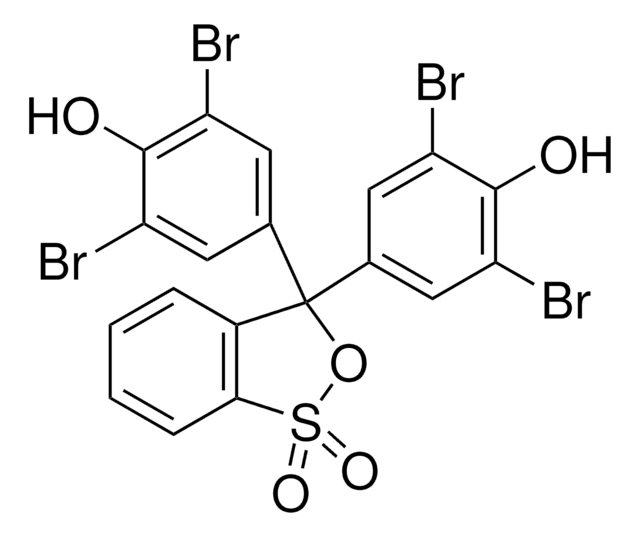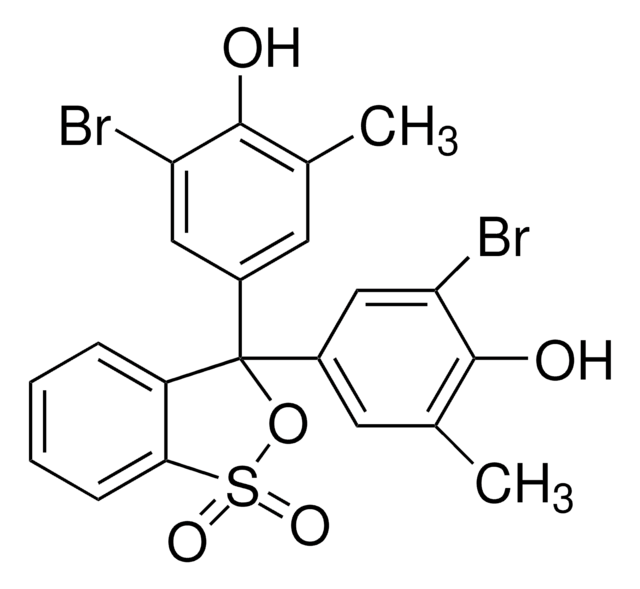114413
Bromothymol Blue
ACS reagent, Dye content 95 %
Synonym(s):
3′,3″-Dibromothymolsulfonphthalein
About This Item
Recommended Products
grade
ACS reagent
Quality Level
form
powder
composition
Dye content, 95%
color
pink-purple
visual transition interval
6.0-7.6, yellow to blue(passes test)
mp
200-202 °C ((392 - 396 °F) - lit.)
200-202 °C (lit.)
λmax
420 nm
ε (extinction coefficient)
≥17000 at 419-425 nm in methanol
≥8000 at 326-332 nm in methanol
≥9000 at 279-285 nm in methanol
storage temp.
room temp
SMILES string
CC(C)c1cc(c(C)c(Br)c1O)C2(OS(=O)(=O)c3ccccc23)c4cc(C(C)C)c(O)c(Br)c4C
InChI
1S/C27H28Br2O5S/c1-13(2)17-11-20(15(5)23(28)25(17)30)27(19-9-7-8-10-22(19)35(32,33)34-27)21-12-18(14(3)4)26(31)24(29)16(21)6/h7-14,30-31H,1-6H3
InChI key
NUHCTOLBWMJMLX-UHFFFAOYSA-N
Looking for similar products? Visit Product Comparison Guide
General description
Application
- as a vital stain to trace the movement of fluids from the lymph and to define cell walls or nuclei under the microscope
- for the demonstration of fungal hyphae within plant roots
- in the assessment of the soluble acidity within single rice grains
- use in an agar gel medium for enumeration of Bacillus cereus
- as a component of several bacterial growth and detection substrates such as cystine lactose electrolyte deficient (CLED/BROLACIN); polymyxin pyruvate egg yolk mannitol bromothymol blue (PEMBA) and MacConkey agar.
Storage Class Code
11 - Combustible Solids
WGK
WGK 3
Flash Point(F)
Not applicable
Flash Point(C)
Not applicable
Personal Protective Equipment
Choose from one of the most recent versions:
Already Own This Product?
Find documentation for the products that you have recently purchased in the Document Library.
Customers Also Viewed
Our team of scientists has experience in all areas of research including Life Science, Material Science, Chemical Synthesis, Chromatography, Analytical and many others.
Contact Technical Service





